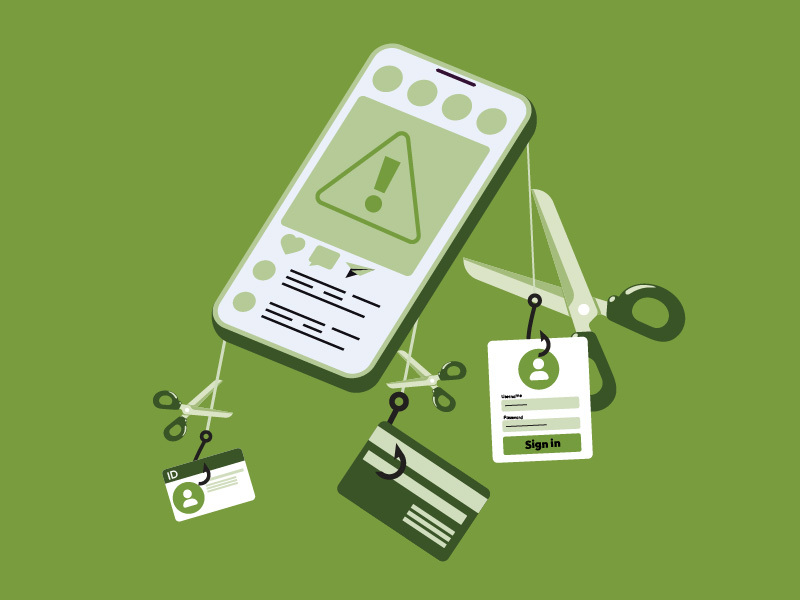Online financial harms are increasingly complex. And the overlap with other safeguarding concerns increasingly evident.
With such harms linking to online safety, toxic influences, safe relationships, mental health, digital/media literacy and more, the PSHE education curriculum is uniquely suited to protecting children and young people.
Our new lesson plans start at key stage 2 then build in complexity as students progress to secondary school and post-16/key stage 5 (see full lesson summary below and watch trailers).
There are also dedicated materials for pupils with SEND, and an accompanying on-demand CPD course for PSHE leads and teachers, which includes practical steps for embedding learning on financial harms within your PSHE curriculum.
This is all part of our work as a partner on the Child Financial Harms programme — a Nominet-funded, Parent Zone led consortium bringing together leading organisations involved in researching and providing solutions to financial harms.

-
-
Lesson title and learning objective
PSHE Association Programme of Study
DfE statutory guidance
Key stage 3:
Lesson 1: Click and pay: Phones and financial riskTo learn about potential financial harms when using phones and in other online contexts.
Lesson 2: Gaming, social media and algorithms: The pressure to spend online
To learn about influences, effects and potential risks of online spending, and strategies to minimise these.
Lesson 3: Money matters: Seeking help and support
To learn about how to manage emotions, seek support and overcome barriers to seeking support, in relation to online spending.
H30. how to identify risk and manage personal safety in increasingly independent situations, including online
H32. the risks associated with gambling and recognise that chance-based transactions can carry similar risks; strategies for managing peer and other influences relating to gambling
R44. that the need for peer approval can generate feelings of pressure and lead to increased risk-taking; strategies to manage this
L15. to assess and manage risk in relation to financial decisions that young people might make
L16. about values and attitudes relating to finance, including debt
L17. to manage emotions in relation to money
L18. to evaluate social and moral dilemmas about the use of money, including the influence of advertising and peers on financial decisions
L19. to recognise financial exploitation in different contexts e.g. drug and money mules, online scams
L20. that features of the internet can amplify risks and opportunities, e.g. speed and scale of information sharing, blurred public and private boundaries and a perception of anonymity
L27. to respond appropriately when things go wrong online, including confidently accessing support, reporting to authorities and platforms
Health education: internet safety and harms
- how to identify harmful behaviours online (including bullying, abuse or harassment) and how to report, or find support, if they have been affected by those behaviours
- the similarities and differences between the online world and the physical world, including: […] the risks related to online gambling including the accumulation of debt, how advertising and information is targeted at them and how to be a discerning consumer of information online.
RSE: Online and media
- what to do and where to get support to report material or manage issues online.
- their rights, responsibilities and opportunities online, including that the same expectations of behaviour apply in all contexts, including online.
- not to provide material to others that they would not want shared further and not to share personal material which is sent to them.
- how information and data is generated, collected, shared and used online.
Key stage 4
Lesson 1: Making money online: Rights, risks and cryptocurrencies
To learn about the risks involved with making and spending money online.
Lesson 2: Wanna bet? Controlled and uncontrolled online spending
To learn about controlled and uncontrolled spending online, and strategies to avoid uncontrolled spending.
Lesson 3: Financial exploitation online: Factors, strategies and support
To learn about ways people might be financially exploited online and how to seek support.
H22. ways to identify risk and manage personal safety in new social settings, workplaces, and environments, including online
H25. to understand and build resilience to thinking errors associated with gambling (e.g. ‘gambler’s fallacy’) the range of gambling-related harms , and how to access support for themselves or others
R35. to evaluate ways in which their behaviours may influence their peers, positively and negatively, including online […]
R38. factors which contribute to young people becoming involved in serious organised crime, including cybercrime
L17. how to effectively make financial decisions, including recognising the opportunities and challenges involved in taking financial risks
L18. to recognise and manage the range of influences on their financial decisions
L19. to access appropriate support for financial decision-making and for concerns relating to money, gambling, and consumer rights
L20. the skills to challenge or seek support for financial exploitation in different contexts including online
L25. how personal data is generated, collected and shared, including by individuals, and the consequences of this
L26. how data may be used with the aim of influencing decisions, including targeted advertising and other forms of personalisation online; strategies to manage this
-
Lesson title and learning objective
PSHE Association Programme of Study
Key stage 5:
Lesson 1: Worth the risk? Identifying high-risk online spending
To learn about high-risk online financial choices.
Lesson 2: The cost of love online: Financial implications of online relationships
To learn about the risks of online relationships for data protection and financial security.
H14. to assess and manage risk and personal safety in a wide range of contexts, including online; about support in place to safeguard them in these contexts and how to access it
R5. to manage personal safety in new relationships, including online activity or when meeting someone for the first time whom they met online
R19. to recognise and manage negative influence, manipulation and persuasion in a variety of contexts, including online
R20. to recognise and manage different forms of abuse, sources of support and exit strategies for unhealthy relationships
L16. to exercise consumer rights, including resolving disputes and accessing appropriate support
L20. to set and maintain clear boundaries around personal privacy and to manage online safety in all its forms, including seeking help when appropriate
L24. to be a critical consumer of online information in all its forms, including recognising bias, propaganda and manipulation
-
KS2
Lesson objective
Learning outcomes
Planning Framework for pupils with SEND
We are learning about spending money online.
Pupils will be able to:
Core: identify examples of how people spend money online, and how that can make them feel
Development: identify common purchases online, and how feelings can influence what we buy
Enrichment: describe differences between necessary and luxury items online, and strategies to manage luxury purchases
Enhancement: explain risks associated with overspending or buying things we can’t afford, and the feelings someone might have in this situation
All: identify strategies to help us with spending decisions online, and who to ask for help
The world I live in 6
Core: Recognise some different ways to pay for things (e.g. coins, notes, bankcards, online, phone payment)
Development: Identify things we (or adults we know) might spend money on, such as food, clothes and things we need to help us to live.
Enrichment: Identify what is meant by a ‘need’ and a ‘want’ in relation to spending money.
Enhancement: Explain what is meant by the term ‘afford’ (in the context of money).
Identify possible consequences of losing money on ourselves or others; whom to go to or how to seek help if this happens to us.Identify possible consequences of losing money on ourselves or others; whom to go to or how to seek help if this happens to us.
KS3-4
Lesson objective
Learning outcomes
Planning Framework for pupils with SEND
We are learning about spending money online and the possible risks of this
Pupils will be able to:
Core: list common ways people spend money online, and identify their reasons for doing so
Development: describe why people spend money online, and possible risks associated with this
Enrichment: explain why people might spend money on things they had not planned to buy, when online
Enhancement: explain why some products online may be scams and some ways to identify these
All: identify tools to help spend money safely, or delay spending money, online
The world I live in 5
Core: Identify some ways that money can be kept safe [online].
Development: Identify some ways in which we are encouraged to spend money, including online.
Describe the consequences of losing money or spending more than we have.
Enrichment: Explain the difference between essential and luxury purchases.
Enhancement: Describe some simple examples of what is meant by ‘value for money’.
Identify what we can do if something we buy is faulty or we want to return it (our legal rights).
We are learning how targeted adverts are used online.
Pupils will be able to:
Core: state what a ‘targeted advert’ is and what this might mean for online spending choices
Development: describe the features of targeted adverts and why they might be more likely to make someone spend money online
Enrichment: describe or demonstrate how targeted adverts are created for individuals based on their online activities
Enhancement: explain why and how companies use the data people share online to personalise their online experience, and the risks associated with this
All: identify who they need to get permission from before they spend money online, and who can help them if they have spent money on a purchase they regret
The world I live in 2
Self-care, support and safety 4
Core: Recognise that advertising online is targeted at individuals.
Development: Identify some of the techniques that advertisers might use to get our attention or persuade us to believe something is true, and what their motives might be.
Enrichment: Explain that information from our internet use is gathered, stored and used by external organisations.
Enhancement: Recognise that data about us can be collected online, and used, for example, to determine what information and advertising we are shown.
We are learning about how people can lose money online.
Core: recognise what is meant by online gambling, including what it means to win or lose money
Development: explain why people might lose money online, and some of the risks of gambling or scams
Enrichment: explain what might influence people to get involved with gambling or online scams and how to challenge this
Enhancement: explain how and why young people are encouraged to gamble online and in gaming, and how to resist influences
All: describe how to access services to help people with gambling troubles or who have experienced a scam
Self-care, support and safety 7
Core: Explain what is meant by the term ‘gambling’ and identify places and ways this might take place.
Identify what it means to ‘win’ or ‘lose’ in relation to gambling.
Development: Give some reasons why people might choose to gamble.
Identify the risks associated with chance-based transactions (including in-game purchases) and gambling, including online.Enrichment: Describe some influences or pressures on people to gamble (advertising, friends).
Identify where and from whom to get help with gambling if we are worried about ourselves or others.
Enhancement: Identify some strategies game apps or advertising might use to encourage online gambling and chance-based purchases (e.g. loot boxes).
Explain some strategies for managing influences related to gambling.
Create a free account to:
- Access free PSHE Association resources and guidance
- Get regular updates on the latest PSHE education news and views, directly to your inbox







